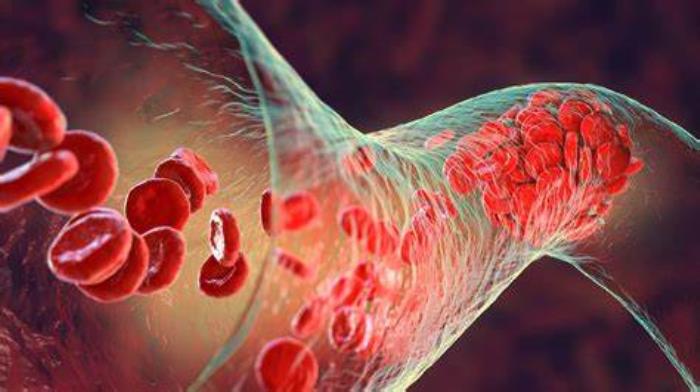Atrial Septal Defect (ASD) is a congenital heart condition characterized by an opening in the wall between the heart's two upper chambers, or atria. This defect allows oxygen-rich blood from the left atrium to mix with oxygen-poor blood in the right atrium, leading to increased blood flow to the lungs and potential heart strain. Understanding ASD and its implications is essential for effective management and prevention of complications associated with the condition.
Overview of Symptoms Associated with ASD
Symptoms of ASD can vary based on the size of the defect and the amount of blood shunting between the atria. Many individuals with small defects experience no symptoms, while those with larger ASDs may experience shortness of breath, fatigue, frequent respiratory infections, or even signs of heart failure over time. Detecting these symptoms early is crucial for managing the condition effectively and minimizing potential health risks.
When is Medication Needed for ASD Management?
While small ASDs may not require treatment, larger defects or those causing symptoms may benefit from medication management, particularly if surgery is delayed or not immediately possible. Medication may be used to alleviate symptoms or manage complications, such as preventing blood clots, reducing fluid buildup, or controlling heart rate. Medications are not a cure but play a supportive role in improving patient outcomes.

Types of Medications Used in ASD Symptom Management
Several types of medications are commonly prescribed to manage symptoms associated with ASD, especially when there is an increased risk of complications. These include diuretics, beta-blockers, and anticoagulants, each targeting specific aspects of the condition to ease symptoms and reduce strain on the heart. An individualized medication plan is essential for achieving optimal results.
Diuretics: Managing Fluid Retention and Reducing Strain on the Heart
Diuretics are often prescribed to reduce fluid buildup in patients with ASD. By helping the body eliminate excess salt and water through urine, diuretics lower blood pressure and reduce strain on the heart, particularly when fluid overload is a concern. This reduction in fluid retention can ease breathing difficulties and prevent symptoms from worsening.
Beta-Blockers: Controlling Heart Rate and Preventing Arrhythmias
Beta-blockers are used to help control heart rate and reduce the likelihood of arrhythmias, which are irregular heart rhythms that can occur in patients with ASD. These medications work by blocking certain chemicals, like adrenaline, that can increase heart rate and blood pressure. This regulation helps prevent excessive strain on the heart, improving the quality of life for those with symptomatic ASD.
Anticoagulants: Reducing the Risk of Blood Clots in ASD Patients
Anticoagulants are prescribed to reduce the risk of blood clots, especially in patients with ASD who may have an increased risk of atrial fibrillation, a common arrhythmia that can lead to stroke. By preventing clot formation, anticoagulants play a critical role in reducing the risk of severe complications. Regular monitoring and adherence to medication are essential for the safe and effective use of these drugs in ASD management.

ACE Inhibitors and ARBs: Lowering Blood Pressure and Heart Strain
ACE inhibitors and angiotensin receptor blockers (ARBs) play a key role in managing ASD-related symptoms by reducing blood pressure and easing strain on the heart. These medications help relax blood vessels, making it easier for the heart to pump blood and reducing the workload on the right side of the heart, which can be overworked in ASD patients. They are commonly prescribed for adults with ASD, especially those with accompanying high blood pressure or heart failure symptoms.
Antiarrhythmics: Managing Irregular Heartbeats
Antiarrhythmic medications are often used in ASD patients who experience irregular heartbeats, such as atrial fibrillation or atrial flutter. These medications work by stabilizing the heart's electrical signals, reducing the likelihood of dangerous arrhythmias. Antiarrhythmics are prescribed based on individual patient needs, and regular monitoring is required to ensure they’re working effectively without causing unwanted side effects.
Medication vs. Surgery: When Each is Recommended
Medication management and surgery each play distinct roles in treating ASD. In mild cases or when symptoms are manageable, medications alone may be sufficient to address issues like irregular heartbeats or high blood pressure. However, larger defects or those causing significant heart strain often require surgery for complete closure. The choice between medication and surgery depends on factors such as ASD size, patient age, symptom severity, and the presence of other health conditions.
Medication Management for Pediatric vs. Adult ASD Patients
Medication protocols for ASD vary between pediatric and adult patients. Children with ASD typically require minimal medication, especially if their defect is small and asymptomatic. For adults, medications may be necessary to manage symptoms such as hypertension or arrhythmias, which can develop over time as the heart compensates for the defect. Pediatric cases often involve more conservative management, while adults may need long-term medication to support heart function.
Monitoring Medication Effectiveness in ASD Patients
Regular monitoring of medication effectiveness is crucial for ASD patients to ensure optimal heart function. Follow-up visits often include imaging tests, such as echocardiograms, and regular assessments of heart rate and blood pressure. This allows healthcare providers to adjust dosages or switch medications if needed, minimizing symptoms and reducing the risk of complications.
Side Effects and Risks Associated with ASD Medications
ASD medications, while beneficial, come with potential side effects. ACE inhibitors and ARBs may cause dizziness, cough, or kidney issues, while antiarrhythmics can lead to fatigue or, in rare cases, pro-arrhythmic effects (worsening arrhythmias). Understanding these risks and reporting any side effects to a healthcare provider are essential for safe medication management in ASD patients.
Role of Lifestyle Changes Alongside Medications
Lifestyle changes, such as regular exercise, a heart-healthy diet, and stress management, can greatly enhance the effects of medications in ASD patients. For example, maintaining a healthy weight and reducing sodium intake can help lower blood pressure, potentially reducing the need for medication. A holistic approach that includes both lifestyle changes and medications can often lead to better long-term outcomes for ASD patients.
Importance of Regular Follow-Up and Heart Monitoring
Regular follow-ups and heart monitoring are vital for ASD patients, especially those on long-term medication. Routine check-ups allow healthcare providers to track heart function, detect any changes, and adjust medications as needed. For patients with larger or symptomatic defects, these visits are essential to ensure stability and address any developing issues promptly.
Collaborative Care: Working with Cardiologists and Healthcare Providers
Managing ASD requires a collaborative approach involving cardiologists, primary care physicians, and sometimes pulmonologists. By working together, healthcare providers can develop a personalized treatment plan that addresses both the structural heart defect and related symptoms. This multidisciplinary approach helps ensure that patients receive comprehensive care tailored to their unique needs.
Real-Life Patient Experiences with ASD Medications
Hearing from patients who have managed ASD with medication offers valuable insights for others on a similar journey. Many patients find that with the right combination of medications and lifestyle changes, they can lead normal, active lives. Real-life experiences can offer encouragement and practical advice on managing side effects, staying consistent with medication, and achieving long-term health goals.
Advances in Pharmacotherapy for ASD Symptom Management
Advances in pharmacotherapy continue to improve symptom management in ASD patients. Newer classes of medications and refinements in antiarrhythmics offer greater efficacy with fewer side effects, expanding treatment options for patients with complex ASD cases. These developments are especially beneficial for adult ASD patients who may require lifelong management of heart-related symptoms.
Transitioning Off Medications After ASD Closure Surgery
For patients who undergo ASD closure surgery, the transition off medications is an important phase of recovery. In many cases, medications like antiarrhythmics or blood pressure drugs may no longer be necessary after a successful surgical outcome. However, this transition should be done under medical supervision to ensure a smooth adjustment and avoid any withdrawal symptoms or rebound effects.
Risks and Complications Associated with ASD Closure Surgery
Get informed about the risks and complications associated with ASD closure surgery. This section outlines potential risks, what patients should be aware of before undergoing surgery, and how healthcare providers work to minimize these risks to ensure safe and effective treatment.
The Benefits of Early Screening for Atrial Septal Defects
Explore the benefits of early screening for atrial septal defects (ASD). This section discusses how timely diagnosis can lead to improved outcomes, reduced complications, and better overall management of heart health, emphasizing the significance of regular check-ups and awareness of symptoms.
Conclusion: Medication as Part of a Comprehensive ASD Care Plan
Medication plays a critical role in managing ASD symptoms, especially when combined with lifestyle changes and regular monitoring. While some ASD cases may eventually require surgery, medications can offer effective symptom relief and improve quality of life for many patients. With a comprehensive care plan that includes collaborative support from healthcare providers, lifestyle modifications, and regular follow-ups, patients can achieve the best possible outcomes in their ASD journey.
Best ASD Closure Surgery in India
The Best ASD Closure Surgery in India is a procedure designed to close a hole in the heart’s atrial septum, improving blood flow and overall cardiac health in patients with atrial septal defects.
Best ASD Closure Surgery Hospitals in India
The best asd closure surgery hospitals in india provide advanced facilities and specialized cardiac teams, ensuring comprehensive care from initial assessment to post-surgical recovery.
ASD Closure Surgery Cost in India
The asd closure surgery cost in india is affordable and transparent, offering patients high-quality care and a range of options to suit their needs.
Best ASD Closure Surgeons in India
The Best ASD Closure Surgeons in India are experts in congenital heart procedures, providing personalized care and a high success rate for patients with atrial septal defects.
FAQ
What medications are commonly used to manage ASD symptoms?
ACE inhibitors, ARBs, and antiarrhythmics are commonly used to manage symptoms like high blood pressure and arrhythmias in ASD patients.
When is medication alone sufficient for ASD management?
Medication alone may be sufficient for patients with small, asymptomatic ASDs or those with manageable symptoms who do not require surgical intervention.
Are anticoagulants necessary for all ASD patients?
Not all ASD patients require anticoagulants. They may be prescribed for patients with specific arrhythmias or clotting risks but are not standard for all cases.
Can lifestyle changes reduce the need for medications in ASD?
Yes, lifestyle changes, such as a heart-healthy diet, regular exercise, and stress management, can support heart health and may reduce the need for medications over time.
What are the potential side effects of ASD medications?
Potential side effects vary by medication but can include dizziness, fatigue, cough, or, rarely, arrhythmia with antiarrhythmic drugs.